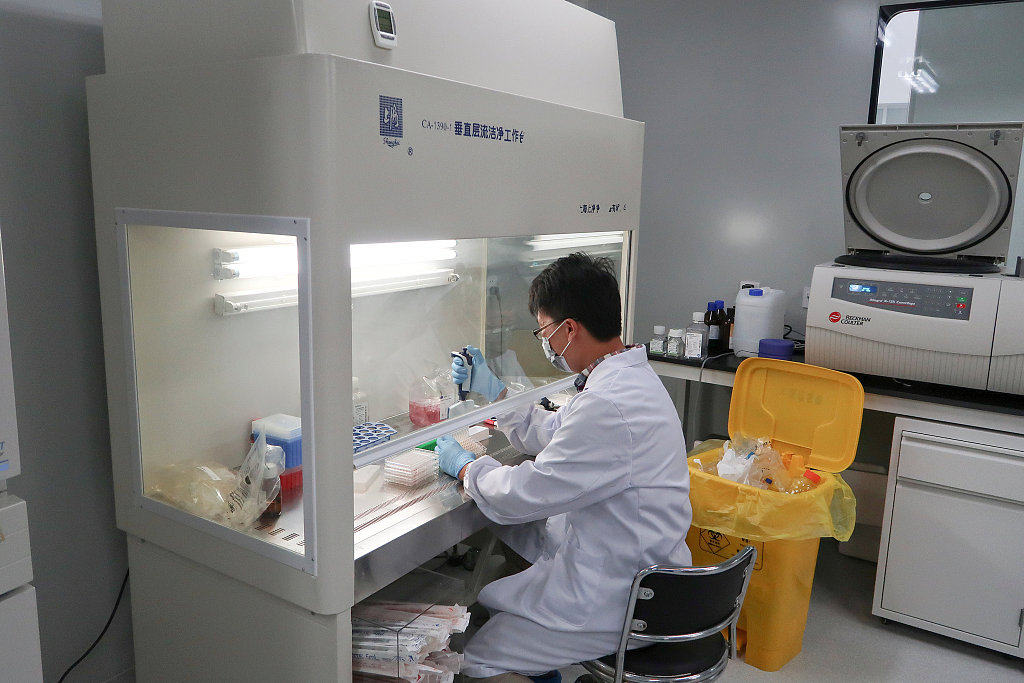Riding reforms for drug innovation


Du Ying leads Zai Lab to excel in biopharmaceutical industry in China
Du Ying, a biotech scientist and chairwoman of Zai Lab, a Shanghai-and San Francisco-based biopharmaceutical company, is quite excited about the latest developments in her industry. She and her colleagues have been using their expertise to bring transformative medicines to cancer, autoimmune and infectious disease patients in China.
The company focuses on discovering, licensing, developing and commercializing proprietary therapeutics for large unmet medical needs in China in areas such as oncology, autoimmune and infectious diseases.
Many opportunities come from China's growing efforts to provide cost-efficient and effective medical services through healthcare reforms. Many market players will benefit and can make more breakthroughs from drug innovation, she said.
Unlike many businesses in the same trade, Zai Lab has been adopting in-licensing - purchasing rights of innovative drug candidates it considers as promising from global biotech companies to co-develop and commercialize in China.
The company also has in-house discovery capability focus for research and development of innovative drugs in oncology and autoimmune diseases.
This business model has boosted Zai Lab's growth, but it requires a sharp instinct for valuable assets and strong executive power.
Founded in 2014, the company specializes in partnering with major global biopharmaceutical companies such as Tesaro, Novocure and Incyte, generating a broad best-in-class and first-in-class latestage pipeline of innovative drug candidates.
Based on its extensive track record of execution and delivering results, Zai Lab has made a high-profile debut on the Nasdaq Stock Market with a $1.4 billion market cap in September 2017.
Zejula (Niraparib), a cancer drug Zai Lab developed in partnership with Tesaro Inc, was recently acquired by British pharmaceutical giant GlaxoSmithKline Plc, and gained the approval in Hong Kong for the second line maintenance treatment of ovarian cancer last year.
Upon filing a new drug application, the drug was granted priority review status by the Center for Drug Evaluation, which is part of China's National Medical Products Administration, for the second line maintenance treatment of adult patients with recurrent epithelial, ovarian, fallopian tube or primary peritoneal ovarian cancer who are in a complete or partial response to platinum-based chemotherapy.
"Even though the market space for developing generic drug is fairly attractive, we will continue to focus on developing innovative drugs, because we are inspired by the progress China has been making to give more easy access for the patients to both home-made and imported drugs," said Du.
Zai Lab, she said, has recognized positive changes at the supervision and reform levels, which will facilitate it to gain more innovation results in China.
The company has two manufacturing plants in Suzhou. One is for a commercial small molecule oral solid dosage and the other for a biologics pilot facility.
Zai Lab plans to further expand its R&D, commercialization and manufacturing teams over the next three years, especially in Shanghai, Suzhou, Hong Kong and Boston. It opened its US headquarters in San Francisco in December 2018.
Du said the innovative business model in China or the United States will not stay only in these two markets. It will likely be applied to various therapeutic fields, and used in other markets too.
In the future, governments and medical institutions in other countries will rush to embrace Chinese innovation, she said.
In addition to preventing and dealing with gastric cancer, liver cancer and diabetes, people in China should avoid excessive use of antibiotics as it could affect health, she said.
"From a long-term perspective, we will not stop at in-licensing. We will deploy more financial resources into innovation to put our growth on a firmer footing."
The government's policies are fairly supportive of innovation and high-quality R&D for new drugs, providing solid incentives for Chinese pharmaceutical companies to file more new drug applications, said Zhang Yuxin, a marketing professor at China Medical University in Shenyang, Liaoning province.
One reason behind this boom is that many Chinese pharmaceutical companies, especially the leading ones, are able and need to either go global or seize more share from home market, he said.
Du would probably agree, given her global exposure. After receiving her PhD from the University of Cincinnati, she started her career with Pfizer Inc in the US in 1994.There, she was involved in the development and launch of two global drugs. She was also responsible for the licensing program in the global metabolic disease therapy area.
She later established and led R&D at Hong Kong-headquartered Chi-Med for a decade. Next, she went into fund management two years before establishing Zai Lab.
Working in an industry that usually burns tons of cash to make breakthroughs, Du said the company's investment in R&D this year will far exceed 828 million yuan ($120 million) it invested in 2018. Zai Lab has received $700 million in financing so far.
During her spare time, Du enjoys reading books in both Chinese and English, as well as making spaghetti for her family. An entrepreneur with hectic schedules and dozens of meetings to attend, she divides her time between China and the US.




































